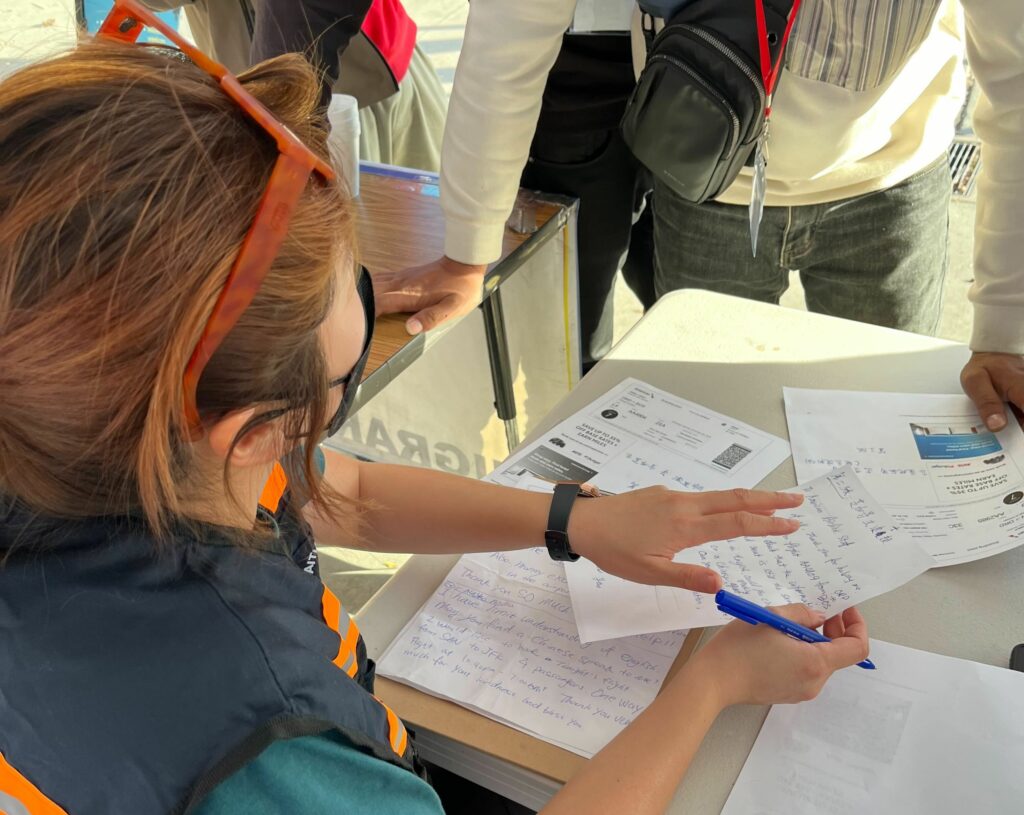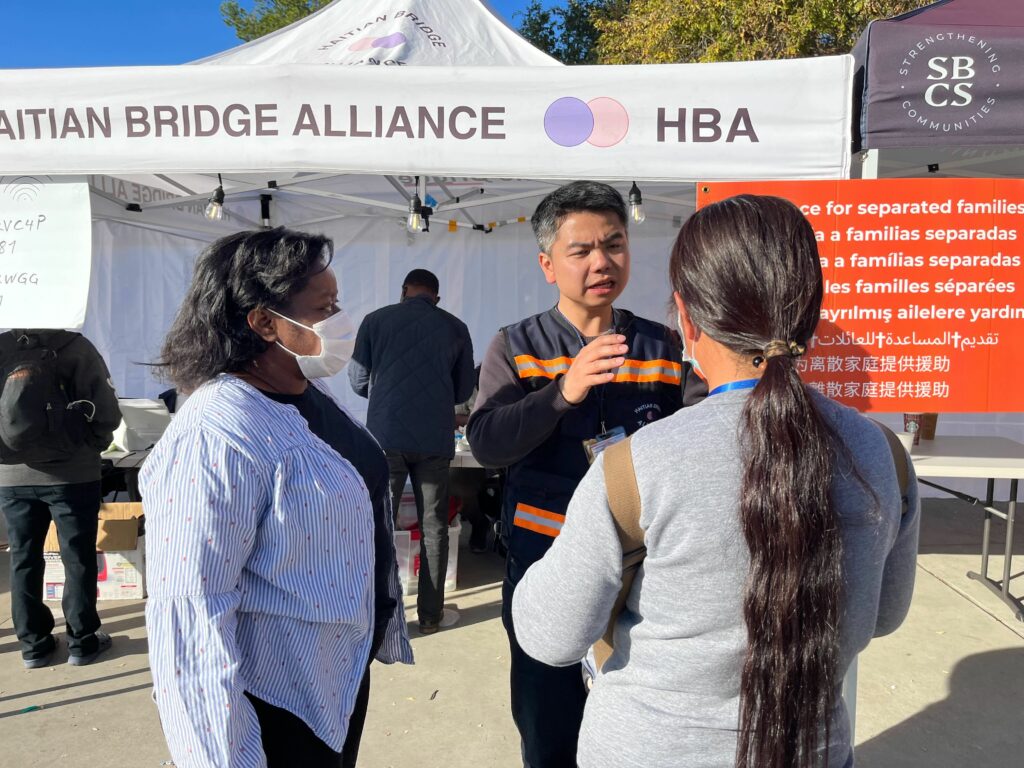This year, more than 24,000 Chinese migrants have made a treacherous 60-mile trek through the Darien Gap risking death and disease to eventually cross from Mexico into the U.S. While Chinese migrants have always entered through this border, these numbers are unprecedented.
With limited capacity to assist Chinese migrants in-language, key groups working at the San Diego Migrant Welcome Center asked CAA to assist with the influx of arrivals. Our immigrant rights team flew down to San Diego immediately.
The Welcome Center is the first stop for thousands of migrants where they can find a moment to breathe after an arduous journey and navigating CBP processes. The center provides food, water, showers, wifi, charging stations, legal support, transportation to the airport or bus station, access to shelters for particularly vulnerable migrants, and a system to reunite separated family members. For many Chinese migrants we met, the number one priority was to arrange transit to U.S.-based family and friends.


The CAA team brought Chinese snacks and treats to share with everyone at the Center, and particularly for Chinese migrants to have something familiar amid so much unknown. One woman picked up one of these snacks and proudly proclaimed “Chinese!” to a man from Turkey looking inquisitively at the treats. The people we met found comfort with CAA staff, and were incredibly grateful for navigation support that otherwise would only be communicated through Google Translate.
In a single day, our team was able to engage and help more than 100 Chinese migrants find separated family members, get information about their rights, be aware about scams that might exploit them, and access basic translation and interpretation.
As we listened to their stories, we were also reminded that the movement of migrants in the world has been driven by geopolitical conflict, economic crisis, and now, climate change. And that these migrants are no different than others seeking safety, stability, and a better life. Our Chinese Digital Engagement Advocate and PiYaoBa writer, Juan Zhan, interviewed a 40-year-old waitress, named “B” for privacy, who made the journey to the U.S. through much peril — she was diagnosed with tuberculosis after reaching the States and, like many women traveling, was at risk of being sexually assaulted.
In China, even though B had an academic background and a good job, she fell on hard times when her husband made investments in agriculture. Because of poor climate conditions, their harvests failed, and B and her husband ended up accruing massive debts with costly interest rates that they tried to pay for with credit cards and loans.
Eventually, B decided she no longer wanted to bear the brunt of her husband’s debt, and decided to come to the United States instead. She became severely malnourished on the path here, but was eventually able to start a new life that gave her hope.
“In the last two years, I have been chased by debt collectors every day, and I have lived neither like a human nor a ghost,” B said. “… After I came here, I felt like my life started again.”




